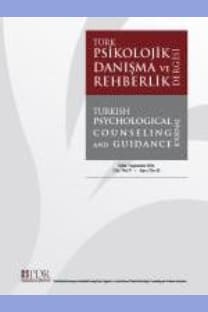Developmental Counseling and Therapy:The Basics of Why it May be Helpful and How to Use it
-
___
- Davidson, H. (1992). Alfarai, Avicenna, & Averroes on intellect. Oxford, Oxford University Press. (Also available via Google Books.)
- Ekaterina L., Popa, D., Apergis-Schoute, J., Fidacaro, G. & Par, C. (2008). Amygdala intercalated neurons are required for expression of fear extinction. Nature, 454, 642-645.
- Ivey, A. (2000) Developmental therapy: theory into practice. (Originally published 1986)
- Ivey, A. (2009) Neuroscience, counseling, and psychotherapy: Implications for Clinical Practice. Keynote Presentation to the Associations of Japanese Clinical Psychologists, Toyko, September.
- Ivey, A., Ivey, M., Myers, J., & Sweeney, T. (2005). Developmental Counseling and Therapy: Promoting Wellness Over the Lifespan. Framingham, MA: Microtraining.
- Ivey, A., Ivey, M., & Zalaquett, C. (2008) Intentional interviewing and counseling: Facilitating client development in a multicultural world. Belmont, CA: Brooks-Cole/Cengage.
- Lane, R. (2008) Neural substrates of implicit and explicit emotional processes: A unifying framework for psychosomatic medicine. Psychosomatic Medicine, 70, 214-231.
- Lane, R., & Garfield, D. (2005). Becoming aware of feelings: Integration of cognitive-developmental, neuroscientific, and psychoanalytic perspectives. Neuropsychoanalysis, 7, 5-30.
- Lane, R., & Schwartz, (1987). Levels of emotional awareness: A cognitive-developmental theory and its application to psychopathology. American Journal of Psychiatry, 144, 133-143.
- McRae, K., Reiman, E., Fort, C., Chen, K., & Lane, R. (2008). Association between trait emotional awareness and dorsal anterior cingulate activity during emotion is arousal-dependent. NeuroImage, 41, 648–655
- Paus, T., 2000. Functional anatomy of arousal and attention systems in the
- human brain. Prog. Brain Res. 126, 65–77.
- Procyk, E., Tanaka, Y.L., Joseph, J.P., 2000. Anterior cingulate activity during routine and non-routine sequential behaviors in macaques. Nat.Neurosci. 3, 502–508.
- Rigazio-DiGilio, S. A. (2000). Relational Diagnosis: A constructive-developmental perspective for assessment and treatment [Special Edition: New Developments in Relational Therapy. M. Goldfried (Ed.) and J. Magnavita (Guest Ed.)]. Journal of Clinical Psychology/ In Session: Psychotherapy in Practice, 56, 1017-1036.
- Rigazio-DiGilio. S. A. (2007a). Family counseling and therapy: Multicultural and theoretical foundations and issues of practice (pp. 429-468). Chapter in A. Ivey, M. D’Andrea, M. Ivey, & L. Simek-Morgan, Theories of Counseling and psychotherapy: A multicultural perspective, Sixth edition. Needham Heights, MA: Allyn and Bacon.
- Rigazio-DiGilio, S. A. (2007b). Systemic Cognitive- Developmental Supervision: Accessing and Extending Meaning and Options within the Supervisory Exchange. Workshop for the Third International Interdisciplinary Conference on Clinical Supervision. Amherst, New York.
- Rigazio-DiGilio, S. A., Daniels, T. G., and Ivey, A. E. (1997). Systemic Cognitive-Developmental Supervision: A developmental-integrative approach to psychotherapy supervision. In C. E. Watkins, Jr. (Ed.) Handbook of psychotherapy supervision, (pp. 223-249). New York: John Wiley & Sons, Inc.
- Speirs, K. (2006). Reliability and predictive validity of the SCDT questioning strategies and classification system. Unpublished Masters Thesis, University of Connecticut, Storrs.
- Stanford Encyclopedia of Philosophy (2008). Influence of Arabian and Islamic philosophy on the Latin West. (http://plato.stanford.edu/entries/arabic-islamic- influence/#FouInt).
- ISSN: 1302-1370
- Yayın Aralığı: 4
- Başlangıç: 1990
- Yayıncı: -
Developmental Counseling and Therapy:The Basics of Why it May be Helpful and How to Use it
Allen E. IVEY, Sandra A. RIGAZIO-DIGILIO
Bir Grup Lise Öğrencisinde Akademik Erteleme Davranışı: Sıklığı, Olası Nedenleri ve Umudun Rolü
Psikolojik İhtiyaçları Farklı Lise Öğrencilerinin Saldırganlık Düzeyleri
Özgür ERDUR BAKER, S. Burcu ÖZGÜLÜK, Numan TURAN, Nevim DEMİRCİ DANIŞIK
Saldırganlık Ölçeği’nin Psikometrik Niteliklerinin Türk Ergenleri İçin İncelenmesi
